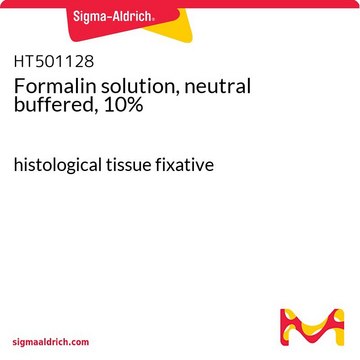134M-1
CD34 (QBEnd/10) Mouse Monoclonal Antibody
About This Item
Polecane produkty
pochodzenie biologiczne
mouse
Poziom jakości
100
500
białko sprzężone
unconjugated
forma przeciwciała
culture supernatant
rodzaj przeciwciała
primary antibodies
klon
QBEnd/10, monoclonal
opis
For In Vitro Diagnostic Use in Select Regions (See Chart)
Formularz
buffered aqueous solution
reaktywność gatunkowa
human
opakowanie
vial of 0.1 mL concentrate (134M-14)
vial of 0.5 mL concentrate (134M-15)
bottle of 1.0 mL predilute (134M-17)
vial of 1.0 mL concentrate (134M-16)
bottle of 7.0 mL predilute (134M-18)
producent / nazwa handlowa
Cell Marque™
metody
immunohistochemistry (formalin-fixed, paraffin-embedded sections): 1:50-1:200
izotyp
IgG1
kontrola
placenta, tonsil
Warunki transportu
wet ice
temp. przechowywania
2-8°C
wizualizacja
membranous
informacje o genach
human ... CD34(947)
Powiązane kategorie
Opis ogólny
Jakość
 IVD |  IVD |  IVD |  RUO |
Powiązanie
Postać fizyczna
Uwaga dotycząca przygotowania
Inne uwagi
Informacje prawne
Nie możesz znaleźć właściwego produktu?
Wypróbuj nasz Narzędzie selektora produktów.
Wybierz jedną z najnowszych wersji:
Certyfikaty analizy (CoA)
Nie widzisz odpowiedniej wersji?
Jeśli potrzebujesz konkretnej wersji, możesz wyszukać konkretny certyfikat według numeru partii lub serii.
Masz już ten produkt?
Dokumenty związane z niedawno zakupionymi produktami zostały zamieszczone w Bibliotece dokumentów.
Produkty
Colorectal cancer is the third most common cancer in both men and women. An estimated 136,000 cases of colorectal cancer are expected to occur in 2016.
Nasz zespół naukowców ma doświadczenie we wszystkich obszarach badań, w tym w naukach przyrodniczych, materiałoznawstwie, syntezie chemicznej, chromatografii, analityce i wielu innych dziedzinach.
Skontaktuj się z zespołem ds. pomocy technicznej







